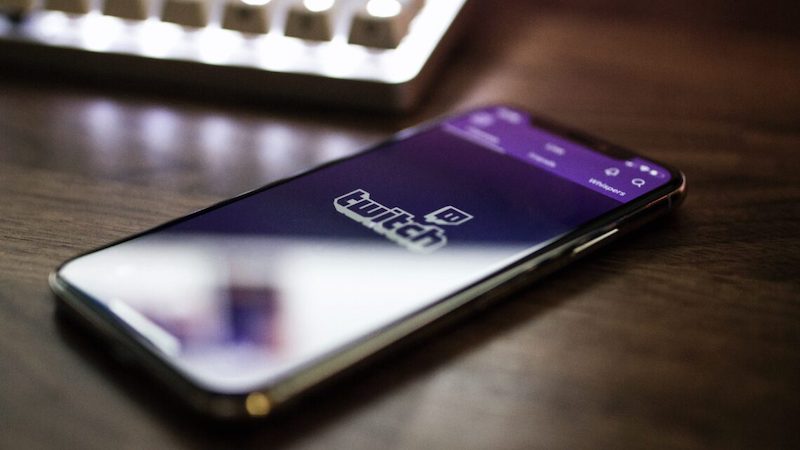Due to copyright problems, the music industry has forced the streaming platform Twitch to delete thousands of posts every week – and has been doing so since May 2020. But what has actually happened? Let’s take a look at how Twitch’s copyright is doing.
The streaming platform Twitch has received thousands of copyright complaints from the music industry in recent months. Many streamers let protected music run in the background during their recordings without the appropriate license or permission.
By May 2020 there were less than 50 copyright complaints per year. But since then, according to their own information, the number of infringements has risen to thousands per week.
As a result, Twitch had to crack down and delete thousands of items from the streaming platform and deactivate accounts. On Twitter, streamers spoke of a real “bloodbath”.
Copyright at Twitch: Streaming platform sends email to streamers
On 20 October 2020, the streaming platform sent an e-mail informing affected streamers that some videos and other content had been deleted by them.
Twitch warned users that they must also delete all videos that were not automatically captured by 23 October 2020. Otherwise, so-called strikes will beckon for every complaint – if there are three strikes, the entire channel will be blocked.
According to Ars Technica, critics accused Twitch of neither giving an opinion nor specifying which content was actually affected. This meant that streamers could not understand in which videos exactly they had violated the copyright for what reasons.
Some users even complained that content was also deleted in which license-free music, soundtracks or even sounds from the game were running in the background.
Many streamers are therefore outraged that the hard copyright rules are being enforced especially on the streaming platform.
Streamers protest under the hashtag #DMCAsoundoff
Twitch itself currently only recommends streamers to mute the sound during a recording – this way they would not run the risk of violating copyright laws.
This is of course not a satisfactory solution. Many users are also protesting against the measures under the hashtag #DMCAsoundoff.
This is a kind of silent protest. The streamers share videos in which they really play video games without any sound – and that becomes a disadvantage for Twitch. The virtual reality music game “Beat Saber”, for example, looks much more boring without sound, as one user on Twitter shows.
And since, as mentioned, soundtracks can also become a problem, another streamer presents the horror video game “Resident Evil 2” completely without sound. “Here is the future of Twitch,” he also writes on Twitter.
Copyright at Twitch: Does DMCA spoil the platform?
DMCA is the abbreviation for “Digital Millennium Copyright Act”, the US-American copyright law, which regulates the copyrights of musicians and Co.
In his latest blog post of November 11, 2020, Twitch himself declared that the sudden “bloodbath” was unfair to his streamers.
“Creators, we hear you”, write the platform operators. “Your frustration and confusion over the recent copyright problems with music are fully justified. Things could – and should – be better for Creators than they have been lately.”
The platform itself has been surprised by the numerous complaints. At the moment there is also no other option for streamers than to ban protected music and sounds from their own videos.
Especially the Twitter video of “Resident Evil 2” shows that the copyright at Twitch, as it currently stands, could spoil the platform – if Twitch doesn’t do something about it.
According to its own statements, the company is already negotiating with major music labels about possible licensing arrangements. However, we can only wait and see how things really go on.
Streamers must rummage through archives and delete old clips
According to the DMCA, streamers must not only pay attention to new content. Most complaints have been received for old clips.
The US TV station CNN had also reported several months ago that the lobbying association of the US music industry RIAA had sent more than 1,800 DMCA ads to Twitch in June 2020.
This means that channel operators must dig through their archives and delete old clips if they do not want to run the risk of losing their channel. Twitch therefore wants to provide its streamers with new tools to make it easier to control and delete their content.
For example, users can now delete several videos at once. This used to not be possible so easily. Streamers can also scan clips created with the “Audible Magic” tool and detect spots with protected music to delete them immediately.
Twitch notes, however, that the tool does not detect every clip with protected music one hundred percent. Users are therefore responsible for using only approved music, regardless of “Audible Magic” itself.
The tool “Soundtrack by Twitch” offers them, for example, the possibility to access a library of sounds approved for streams.
Copyright by Twitch: How does the future look like?
Currently, the future of Twitch looks uncertain. For many people, watching other streamers playing games has become a pleasant leisure activity.
But without the appropriate sound effects, many people will lose the fun – after all, many games seem to be dumb and not only much more boring. Some games – for example from the category “music games” – simply do not work at all without sound.
As a result, users are likely to spend less time consuming Twitch content – and that has negative consequences for both the streamers and Twitch itself. The platform will become uninteresting if nothing changes.
We can therefore only wait and see whether Twitch will buy licenses or make other arrangements in the near future. What is certain is that the platform must find a solution as soon as possible – otherwise it is in danger of a free fall.










